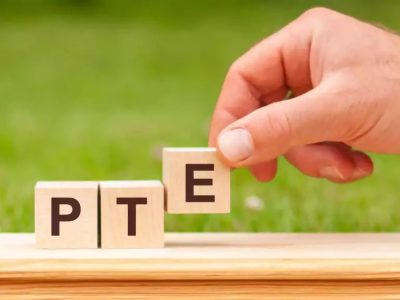Skills assessment is a crucial step for individuals seeking professional recognition in Australia. It is a process that evaluates the skills, qualifications, and work experience of applicants to determine their suitability for employment or migration purposes.
While skills assessment services in Australia provide valuable guidance and support, applicants often encounter various challenges during the assessment process. This article highlights common challenges faced by individuals and provides practical solutions to overcome them, ensuring a smooth and successful skills assessment experience.
Challenges and Solutions of Skills Assessment Process
- Understanding the Assessment Criteria: One of the primary challenges is comprehending the assessment criteria and requirements. Each occupation or professional body has specific criteria for skills assessment. To overcome this challenge, carefully review the assessment guidelines provided by the relevant authority.
Seek clarification through official documentation, online forums, or contacting the skills assessment services directly. Take time to understand the documentation requirements, qualification equivalencies, and evidence needed to demonstrate your skills and experience.
- Gathering Sufficient Documentation: Skills assessment services Australia requires applicants to provide extensive documentation, including educational qualifications, employment history, references, and supporting evidence. Gathering all the necessary documentation can be time-consuming and challenging.Start early and create a checklist of required documents. Maintain organized records of your qualifications, employment contracts, job descriptions, and relevant references. Seek guidance from the skills assessment services to ensure you provide the correct and complete documentation.
- Meeting Educational Requirements: Many skills assessment processes have specific educational requirements, including minimum qualifications or specific degrees. If you do not meet the educational requirements, it can pose a significant challenge.To overcome this, consider alternative pathways such as completing additional courses, obtaining relevant certifications, or undertaking bridging programs to meet the educational criteria. Research educational institutions and programs recognized by the skills assessment authority to ensure compliance.
- Recognition of Overseas Qualifications: Applicants with overseas qualifications may face challenges in obtaining recognition for their credentials in Australia. This can lead to difficulties in the skills assessment process. Contact the relevant skills assessment authority to understand their recognition process for overseas qualifications.Provide certified translations and official transcripts for your qualifications. In some cases, applicants may need to undergo a recognition process or assessment by a professional body to align their qualifications with Australian standards.
- Language Proficiency Requirements: Skills assessment services in Australia often require applicants to demonstrate English language proficiency through tests such as IELTS or PTE. Language proficiency can be a challenge for non-native English speakers.Prepare for the language proficiency tests well in advance by enrolling in language courses or engaging in self-study using online resources and practice materials. Familiarize yourself with the test format and practice under timed conditions to improve your confidence and performance.
- Skill Gap Identification and Bridging Programs: Skills assessment may identify gaps in an applicant’s skills or qualifications that do not fully meet the requirements. This can be a challenge, particularly if the identified gaps are significant.Research and consider enrolling in relevant bridging programs or professional development courses to address the skill gaps. These programs provide additional training and education to enhance your skills and increase your chances of meeting the assessment requirements.
- Keeping up with Changing Assessment Policies: Assessment policies and requirements can change over time, leading to uncertainty and confusion. To overcome this challenge, stay updated with the latest information and policy changes by regularly visiting the skills assessment authority’s website, subscribing to their newsletters, or following their social media channels.Seek guidance from professional migration consultants or agents who have up-to-date knowledge of the assessment process and can provide accurate information.
- Seeking Professional Guidance: Navigating the skills assessment process independently can be overwhelming, especially for complex occupations or those with limited information available. Consider seeking professional guidance from registered migration agents or consultants who specialize in skills assessments.They can provide expert advice, help you understand the assessment criteria, guide you through document preparation, and assist in addressing any challenges or concerns throughout the process.
Conclusion:
Skills assessment is a critical step in the professional recognition journey for individuals planning to work or migrate to Australia. While challenges may arise during the process, proactive measures can help overcome them. By understanding the assessment criteria, gathering the necessary documentation, meeting educational requirements, addressing skill gaps, and seeking professional guidance, applicants can navigate the skills assessment process successfully.
Be diligent, stay organized, and remain updated with the latest policies and requirements of the skills assessment services in Australia. With the right approach, perseverance, and support, you can overcome challenges and achieve a positive skills assessment outcome, paving the way for future career opportunities in Australia.
Know More: What Are The Best And Easiest Ways To Migrate to Australia?






Comments